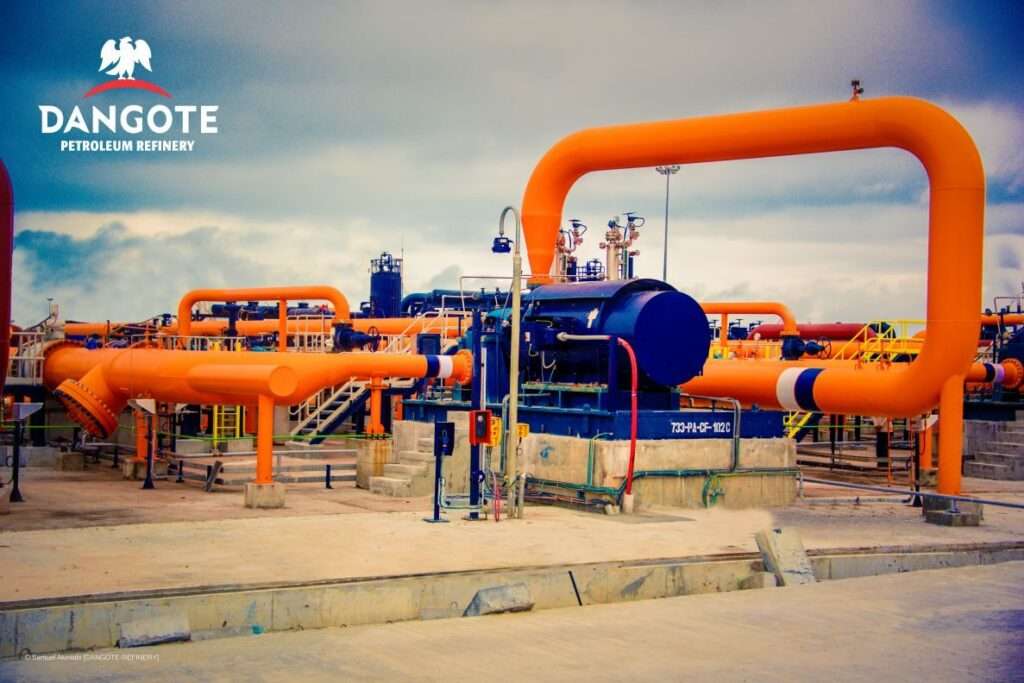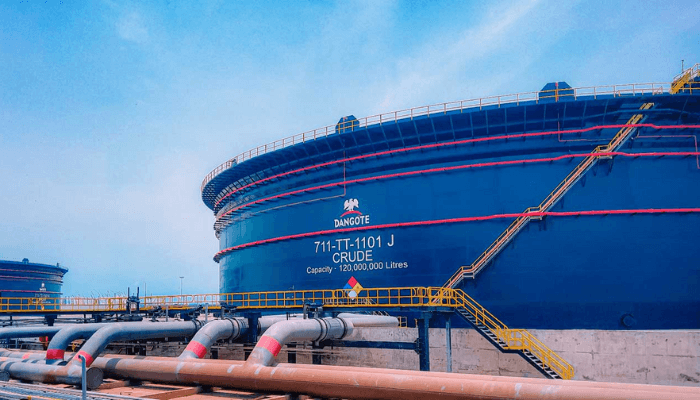The Dangote Petroleum Refinery has firmly established itself as a game-changer in Africa’s energy landscape, reshaping trade flows and ending decades of dependence on imported petroleum products in West and Central Africa.
With a nameplate capacity of 650,000 barrels per day, the refinery has become the largest single-train refining complex in the world and is already shifting the balance of energy supply in Africa. Experts say its impact is being felt not only in Nigeria but across the continent.
At a webinar organized by the Major Energy Marketers Association of Nigeria (MEMAN), Gary Clark of S&P Global Commodity Insights underscored how the facility has rapidly transformed the market.
“Prior to the ramping up of supply at the Dangote refinery, West Africa was very much reliant on imports from Europe and elsewhere.
“But now, with the refinery coming online, we see a lot of gasoil, diesel, and jet fuel exported from Dangote, meeting West African and Central African demands.”
Gary Clark of S&P Global Commodity Insights

Since commencing production last year, the refinery has consistently supplied diesel, gasoil, and aviation fuel across the region.
More importantly, it has stabilized Nigeria’s own domestic market, which for decades had relied almost entirely on imports despite being Africa’s biggest crude producer.
Clark noted that Dangote’s ramp-up has already shifted the balance of supply and demand across multiple African economies.
“More than enough jet fuel has been exported to supply both the region and also more far-flung destinations as well.”
Gary Clark of S&P Global Commodity Insights
This marks a historic reversal of fortune for Nigeria, which until 2023 was the largest importer of petrol in Africa, importing nearly 500,000 barrels per day.
New Era for Nigeria’s Energy Security

By mid-2025, Nigeria’s imports had plummeted to just 88,000 barrels per day, thanks to Dangote’s refining operations.
According to a CITAC Africa report, Nigeria is now on track to import only 6.4 million tonnes of refined products in 2025—less than half of South Africa’s projected 15.5 million tonnes.
The numbers reflect a broader transformation. Between June and July 2025, Dangote Refinery exported about one million tonnes of Premium Motor Spirit (PMS), confirming Nigeria’s new role as a net exporter of refined products.
The development has significantly boosted Nigeria’s energy independence while also saving the government billions in foreign exchange. Industry analysts estimate that the refinery could save up to $10 billion in forex outflows this year alone.
One of the refinery’s most significant achievements has been its ability to end Nigeria’s chronic shortage of aviation fuel.
Imports of jet fuel, which averaged 13,000 barrels per day, have now been cut to just 5,000 barrels per day, with Dangote meeting most of the nation’s aviation sector demand.
This has been particularly impactful for the Nigerian airline industry, which has long suffered from erratic supply and soaring costs of imported aviation fuel. With Dangote’s consistent output, airlines now enjoy greater price stability and supply security.
Beyond Nigeria, the refinery has extended its reach to Senegal, Togo, Benin, and Gabon, exporting refined products that are helping stabilize markets across West and Central Africa.
But perhaps the most striking development has been its penetration into global markets. In early 2025, the United States imported 1.7 million barrels of jet fuel from Dangote in a single month, a milestone that underscored Africa’s rising importance in global energy trade.
Similarly, Saudi Aramco one of the world’s biggest oil giants—purchased three cargoes totaling 130 million liters of refined fuel from Dangote, a move that surprised many in the global energy community.
Reshaping Trade Flows and Market Dynamics

The impact of the refinery has been profound. Regional crude throughput rose 77.8% year-on-year in 2024, driven almost entirely by Dangote’s operations.
This shift has not only boosted Africa’s refining capacity but also reduced reliance on Europe and Asia for imports.
Experts say the refinery’s growing output is creating a more resilient and self-sufficient African energy market, insulating economies from international market shocks and helping governments redirect scarce forex reserves to other development needs.
Aliko Dangote, President of the Dangote Group, has described the refinery’s role as transformative.
Speaking earlier this year, he highlighted how the refinery was designed to meet Nigeria’s full domestic fuel demand while positioning the country as a regional hub for refined petroleum products.
With production now reaching 550,000 barrels per day and satisfying about 60% of Nigeria’s petrol demand, the Dangote Refinery is expected to consolidate its role as Africa’s refining powerhouse.
Its output not only secures Nigeria’s domestic energy supply but also strengthens the continent’s hand in global fuel trade.
As the facility continues to expand its exports, analysts predict it will remain a strategic anchor for West Africa’s energy future, cementing Nigeria’s status as a leader in regional energy security and trade.
READ ALSO: A Smart Move to Save the Cedi – Women in Forex Ghana Prez Hails BoG Directive























